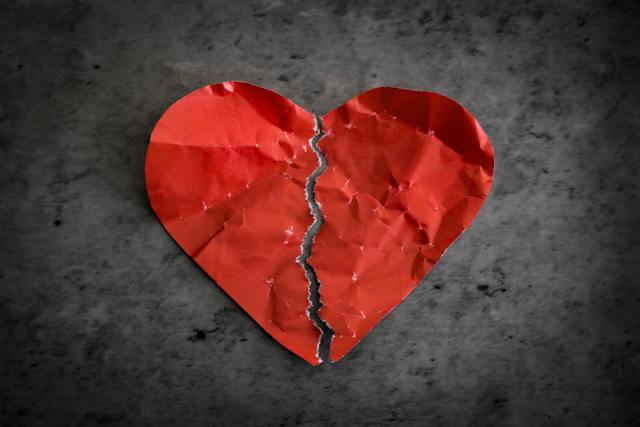Dependence on a person in psychology and its signs? There is a fine line between relationship addiction and love. It is not easy to distinguish between these feelings, they are both strong. No, if love is a creative feeling, then addiction is a destructive state. Let’s try to find out signs of dependence between partners.
What can indicate addiction?
- Mixed responsibility
In a constructive relationship, both partners are responsible for themselves. They satisfy their own needs. And not only material, but also EMO-rational. They do not take on a lot and do not shift to another.
In a dependent relationship, you shift the responsibility for your happiness to the chosen one. Another scenario is also possible, when a woman is fully responsible for a man, as if “adopting” him. For example, a wife tries her best to get her alcoholic husband out. In this case, both she and the children suffer. While he drinks, she pulls the children, herself, her husband.
- Foggy personal boundaries
If you are in a healthy relationship, you are clearly aware of the personal boundaries of yourself and your partner. If the words or actions of another person cross the boundaries of Your permissibility, THEN You clearly feel this and know how to say “no”.
To it, it is given in the morning, it is not there, it is not necessary. When you are in a dependent relationship, the boundaries of what is permitted are washed away. The clarity of understanding is lost, where are your boundaries, where is your partner.
In blurred boundaries, you constantly sacrifice your needs, independence. Or you yourself, without realizing it, violate the boundaries of a man. This process happens gradually. If you do not notice the situation in a timely manner, there is a risk of completely losing the boundaries.
If you are in a healthy relationship, then you communicate as equals. You respect each other, reckon with the opinion, negotiate, look for a compromise.
In a dependent relationship, one partner takes on the dominant role, while the other takes on the role of the child. At first it seems cozy. One of the spouses feels power, the other feels comfortable security. The latter does not need to decide anything. He is led. The lead partner takes care of everything.
Signs of EMO-addiction
Subsequently, a hierarchy of subordination and dominance may be built. Relations will stand on the verge of transition into “aggressor-victim”. A strong person will imperceptibly move from protection to the offender. If it is pottery, it is in the parry that it is possible to say that it is only a few words.
- Taboo on emotions
In constructive relationships, partners freely express their emotions, both positive and negative. They are not afraid to show resentment and irritation. In this case, the negative comes out, does not accumulate. The couple knows how to negotiate with each other, shows mutual respect, interest.
In a destructive relationship, emotions are suppressed. Often there is a ban not only on the expression of negativity, but also on its awareness. As a result, there is an accumulation of unexpressed emotions, uncontrolled quarrels and scandals arise. No one is emotionally affected, and it is possible to win, which is also related to the situation.
- Disrupted Communication
If this is love, then people communicate directly, openly, honestly, taking the point of view of a partner. Much of the communication is about feelings. Partners will try to change the emoji and the potency between the steel and the manipulator.
In painful relationships, there is no way to find contact. Partners don’t care about the subject, it’s worth it, you don’t want to worry about it. Therefore, to satisfy them, it remains only to manipulate the relationship.
- Painful “inner self”
If you are in a constructive relationship, then you experience only positive emotions for a man: respect, gratitude, love. And it does not matter here that there are quarrels between them.
On the contrary, if you know how to defend your position, enter into a conflict, resolve it, then this is a sign of a healthy relationship where crises are not ignored. Conflict resolution is timely.
If you are in a dependent relationship, then your main state is anxiety, apathy, anger. If, at the same time, the blurring of boundaries, the inability to express emotions, the confusion of responsibility are connected, then there are difficulties with sharing one’s feelings and correlating them with needs.
It turns out that you feel bad, but why you can not understand. The only thing that matters is that the routine words are saved, and that they are stored in the apartment. Any action is not productive. Physiology is reinforced.
- isolation
Constructive relationships help your development. Your life is not limited to family. You have friends, family, professional connections. You have the opportunity to communicate with people, live a full life, realize yourself in interesting areas, etc.
However, it is not necessary to allow yourself to be saved and understood. Harmony fits into your life. In a dependent relationship, you drop out of life, do not have the opportunity to receive support outside the family relationship.
If the contact is posted, it is not. And you remain isolated from the outside world. This is an extremely negative situation. On the other hand, it is sold in the living room, which also allows you to follow the rules. It is not possible to do so.
Because and in the case of the psychological problems, it is not possible for the doctor to use it, because “musor is not there”. If this happens, you suffer from guilt and shame. You have an opinion that people will not understand you.
- Fear of leaving a relationship
In Constructive relationships you are aware of your freedom, You know that at any moment, at will, You can stop them. The only thing that leaves you in connection with a man is your comfort and calmness. Both people decide to be together.
In a dependent relationship, even if you feel bad, you do not feel free. You have no choice. If you plan to return, your partner will not speak to you.
You have a fear of leaving the relationship, because social ties have already been destroyed, your personality is traumatized. Leaving an addiction is always scary.
- Acceptance of partner’s unhealthy habits
If your partner has unhealthy habits and you tolerate them, then that is also a sign of an addictive relationship. First you pull him out of the hole, then you begin to share his habit with him. It often happens that women, tired of fighting their husband’s alcoholism, begin to drink with him themselves.
- Lack of faith
In healthy relationships, you perceive the future as positive. You believe that there are many opportunities ahead of you. You are the master of your life, you know that you have a lot of bright events ahead of you.
In a dependent relationship, the future becomes bleak before you, there are no prospects. You feel that the best is behind you. Moreover, such a worldview occurs regardless of age.
Dependent relationships destroy a person. As soon as you find the first signs of them in yourself, immediately begin to fight them. Otherwise, there will be a risk of losing yourself, completely dissolving in a partner.

